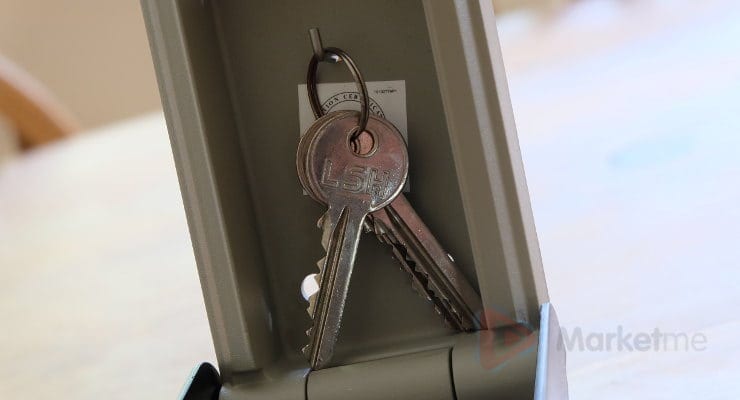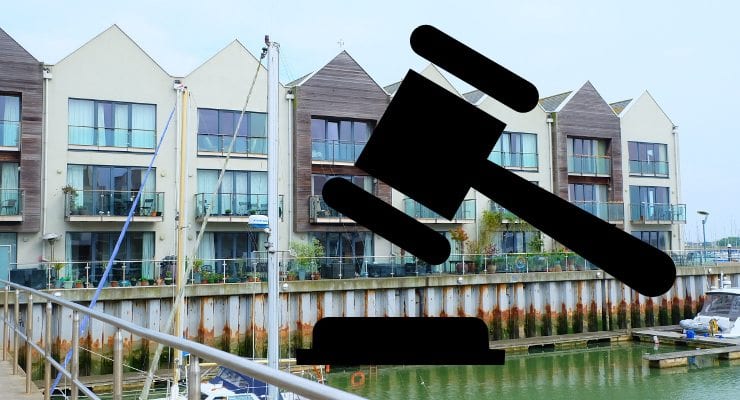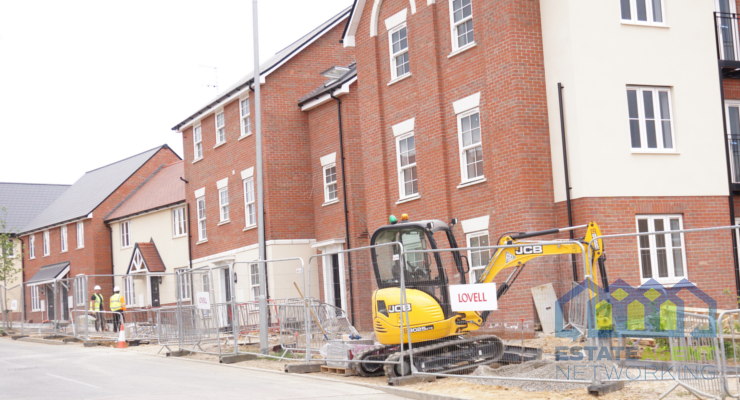Registering a Property – Is it Yours or the Government’s?
During my years of property ownership I have always made sure that what we purchased was registered so that I secure the legal ownership. So when that cash payment or that mortgage transfers across from solicitor to solicitor then so do those all important deeds… Then it is over to the estate agents to communicate to the chain for all systems go, removal vans to get cracking and keys to be exchanged.
What many of us consider as the situation when it comes to ownership of property:
“Ownership of a property in England and Wales is authenticated from two documents that are created by the Land Registry whenever a property purchase occurs. These two documents are the Title Register and Title Plan. Section B of the Register provides the name and address of the property owners (the registered proprietors) and states the date upon which they were registered and the amount they paid for the property.” source Land Registry Online
Common practise in the UK for when searching land and property information including ownership is to refer to HM Land Registry. Easy to use, paid for service, search database where you can find out the owner of property / land, the price paid, mortgage or not, any common issues such as right of ways and similar can be discovered by searching via HM Land Registry (usually £3 per search). More complex reading can be taken from Law of Property Act 1925.
So, with plenty of information online towards property ownership including official registration of ownership via .gov websites, we should all be fine that we are indeed the true owners of our land / property assets?
You can own a piece of land if it is registered or unregistered. Most land will be registered thus findable on the government database (HM Land Registry) though parcels are scattered across the country where no registration has taken place yet an owner still exists.
Most unregistered land is known to be that of aristocracy and the Church which usually have not seen a new transaction of ownership since registration become compulsory.
Do I own my land? Many will say yes to a certain point and not fully. Full ownership means you can do whatever you wish without permission or hindrance.
You can not have outright ownership, but you do have ownership of the rights and can sell on these rights whenever you wish.
“Since 1990 it has been compulsory when buying unregistered property or land to apply to have the land registered within 2 months of a sale completing.” source parliament.uk
Note: You also own, and have rights in the airspace above your property; however, these rights are limited. There are two types of airspace – the lower and upper stratums. source in brief
Does the Crown own my land and I merely own the title deeds? It is stated that the Crown owns all the land of the country and merely we get given an estate in the land. Essentially all land is owned by the Crown, what everybody else holds is something known as an estate in the land, or a bundle of rights over that piece of land. The highest right you can have is a fee simple absolute in possession, which is more commonly known as freehold.
Though ownership belongs to the Crown via this understanding, the land you have acquired gives you the title and the rights that are limited with rules via four key factors that we will discuss below that the government hold.
So it would appear all land (in England & Wales) originates from the Crown to which you can acquire the title of and rights to re-sell / hand over to another party, the government, ie the state, has hold over it with regards to law and taxes.
Does the government own my land (if registered with them) and I am just the registrar as they still can charge me taxes on it and can legally claim back (compulsory purchase) the land should they require such as for clearing way for new roads? Is this why some people / businesses have unregistered land so that they do not have to oblige by the rules of the government? Let’s face it, you may own your land / property yet you still have to request permission from the government to make changes / new builds / change of use etc.
The government holds the following over you when it comes to your ownership of your land / property, these being taxation, eminent domain, police power, and escheat – These factors can effect the ownership rights of your land / property. Does this then not tell us that ownership, absolute, does not lay with you the registered owner?
Though, reverse the mind set here and what the government hold these rights to, such as planning permission, is there to protect you as a land / property owner in that prevention of de-valuing takes place as per blocking others around you from building what ever they wish, ie your sea views blocked out by construction of a block of apartments on neighbouring land. In all that we do we need to abide by the law of the land?
Where does Common Law come in to play with regards to Land Ownership and duties?
In recent months I have been swatting up on the subject of common law, the law of the land many will refer it to being and one which was largely created in the period after the Norman Conquest of 1066. Now this is not just one of those side way positioned laws, unofficial and somewhat tin foil hat imaginary law practises to get you out of a sticky speeding fine, a parking ticket or if you were caught hosting an illegal rave – This is an established and recognised authority, the common law system (search for yourself on Google) being a legal system that gives great precedential weight to common law, on the principle that it is unfair to treat similar facts differently on different occasions.
So when referring to common law, within certain set circumstances and especially new and outside of already covered topics, we need to refer to common law practises and facts in order to come to a conclusion / solution within unspecified and unregulated areas of law. Such examples include Japanese Knotweed and the responsibility of the land owner – Covered in an easy to understand video below:
Photo credit: Pixabay









